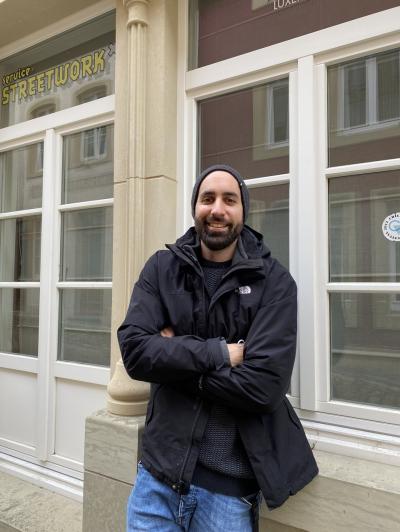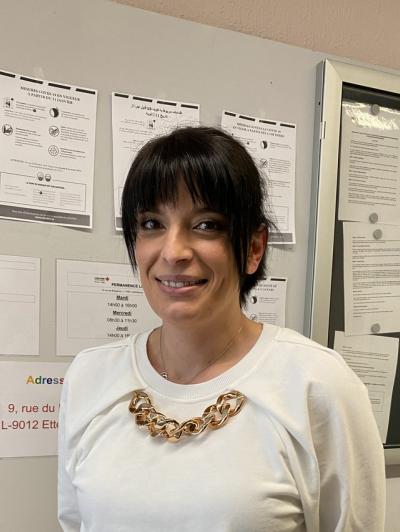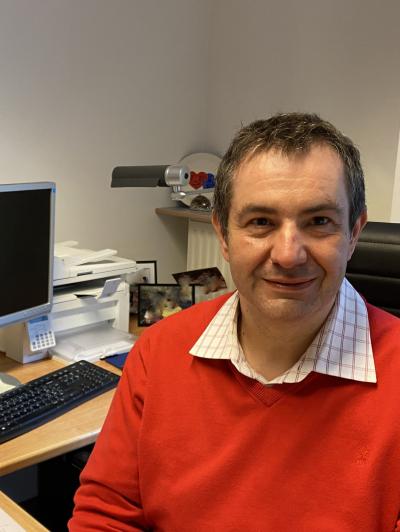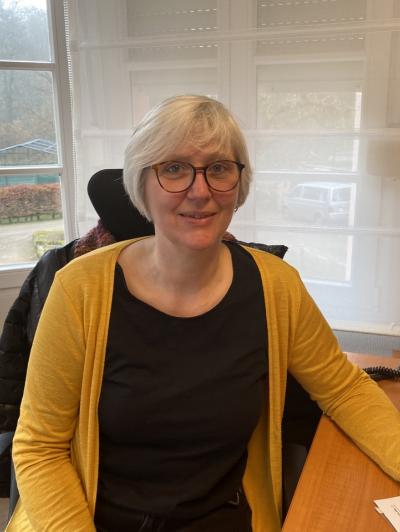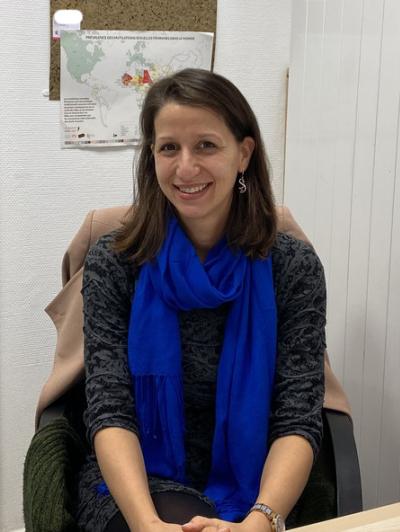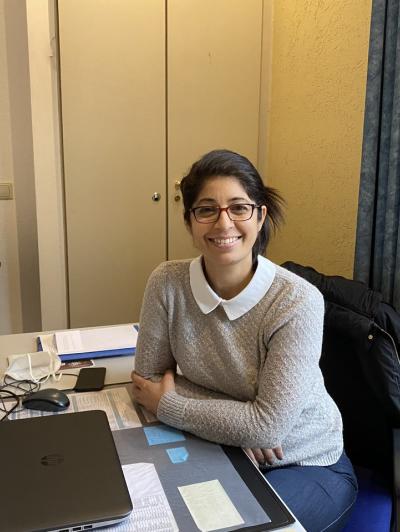
Bernard Horschler - The important thing is not to arrive, but to get started!
Monday 16 September 2019
Bernard Horschler is an educator at the Centre Ulysse, an emergency shelter for homeless people.
Why did you choose the profession of educator?
My professional path is a little special because it is only in my early thirties and after a professional career in a completely different field that I decided to turn to the profession of educator. I wanted to do something that makes sense and be in touch with people. I then worked in several social structures - always with adults - before arriving at the Centre Ulysse.
What are you doing in concrete terms at the Centre Ulysse?
The Centre Ulysse is an emergency structure for homeless people. The people who come to us are in the middle of a crisis. The role of educators is to provide them with a sufficiently secure environment so that they can recover, and to support them towards reintegration into society.
What qualities do you think a good educator should have?
He has to be serious, but without taking himself too seriously. At the same time, he must be able to round off the angles. It is not easy to work with people who have lost their sense of human connection through living alone on the streets, who constantly criticize the society that has excluded them or who are dependent on alcohol and/or drugs. There are many tensions. I often compare educators to materials that, after absorbing the shocks, return to their original form. To do this job, you have to be made of these materials!
What do you particularly like about what you do?
These are of course the meetings. Outside times of tension, we often laugh. It's a place where people are very nice anyway.
It is also the fact that no two days are alike. In the morning, when I arrive at the Centre, I never know what to expect.
What do you like least about it?
I often wonder if it is fair to try to reintegrate people into a "system" or "social order" that ultimately produces so many excluded people.
Are there any things you should pay particular attention to when working with your audience?
First of all, to yourself, because you are quickly overwhelmed by your emotions.
Secondly, we must not be tempted by what I call "the omnipotence of the educator". In the face of aggression, threats or insults, a decision may be made that could destroy the person's previous efforts or worsen his or her situation. We must keep in mind that the people we support depend on us.
Finally, and I have experienced this, you should never go too fast with people, nor set too high goals, because nothing is ever acquired and relapse is always possible. I learned over time that the important thing is not to arrive, but to get started!
What makes you stronger on a daily basis?
The team is important. Since we're going through the same things, it's easier to put up with them. We encourage each other. Experience and habit also play a role.
Do you feel that you are valued in what you do?
You can't expect the people you help to say thank you. This happens, of course, but more often than not, homeless people are so caught up in their problems that they simply don't think about it. That's normal. Anyway, I'm not doing this to get something in return. I am happy when I meet people I have accompanied in the past and they act as if they don't know me. It means that they have managed to get out of it and that they want to forget this sad time in their lives that I remind them of.
Linked news
Donate
Your donation is essential to ensure the continuity of Caritas Luxembourg's actions in the service of the poor.
Other donation methods
